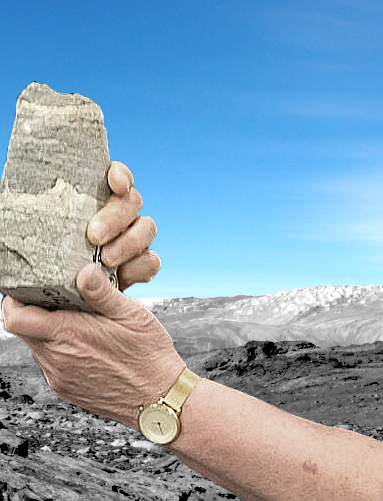Locals find oldest fossils
 Australian researchers have uncovered the world’s oldest fossils – and it could have big implications for the future.
Australian researchers have uncovered the world’s oldest fossils – and it could have big implications for the future.
A team of Australian researchers have reported on 3.7 billion year old stromatolite fossils discovered in a remote area of Greenland, giving new hints of the early history of the planet.
The fossils were found in the world’s oldest sedimentary rocks, in the Isua Greenstone Belt along the edge of Greenland’s icecap.
Research leader Professor Allen Nutman from the University of Wollongong said the Isua stromatolite fossils predated the world’s previous oldest stromatolite fossils - which were found in Western Australia - by 220 million years.
The discovery pushes back the fossil record to near the start of the Earth’s geological record and points to evidence of life on Earth very early in its history.
The Isua stromatolites, which were exposed by the recent melting of a perennial snow patch, were laid down in shallow sea, providing the first evidence of an environment in which early life thrived.
For much of Earth’s history, life was just single cells, and stromatolite fossils are mounds of carbonate constructed by these communities of microbes.
“The significance of stromatolites is that not only do they provide obvious evidence of ancient life that is visible with the naked eye, but that they are complex ecosystems,” Professor Nutman said.
“This indicates that as long as 3.7 billion years ago microbial life was already diverse. This diversity shows that life emerged within the first few hundred millions years of Earth’s existence, which is in keeping with biologists’ calculations showing the great antiquity of life’s genetic code.”
Co-lead investigator Associate Professor Vickie Bennett, from ANU, said this study provided a new perspective into the history of the Earth.
“This discovery turns the study of planetary habitability on its head,” Associate Professor Bennett said.
“Rather than speculating about potential early environments, for the first time we have rocks that we know record the conditions and environments that sustained early life. Our research will provide new insights into chemical cycles and rock-water-microbe interactions on a young planet.”
New findings about the primordial origins of life on Earth can help our efforts in space, by giving researchers new things to look at when sifting through the ancient rocks of planets like Mars.







 Print
Print